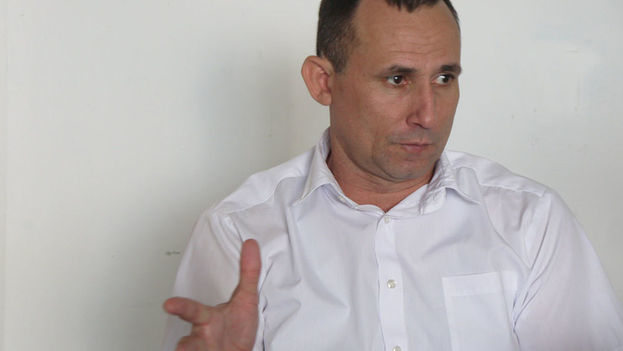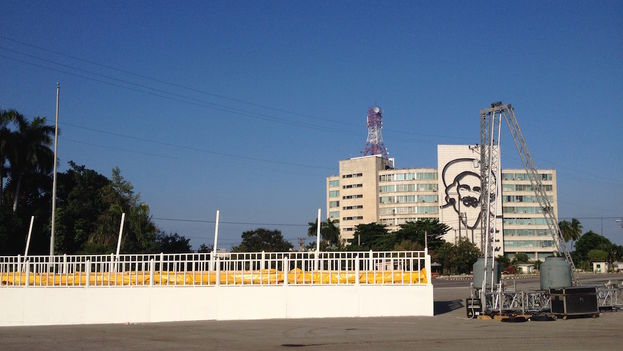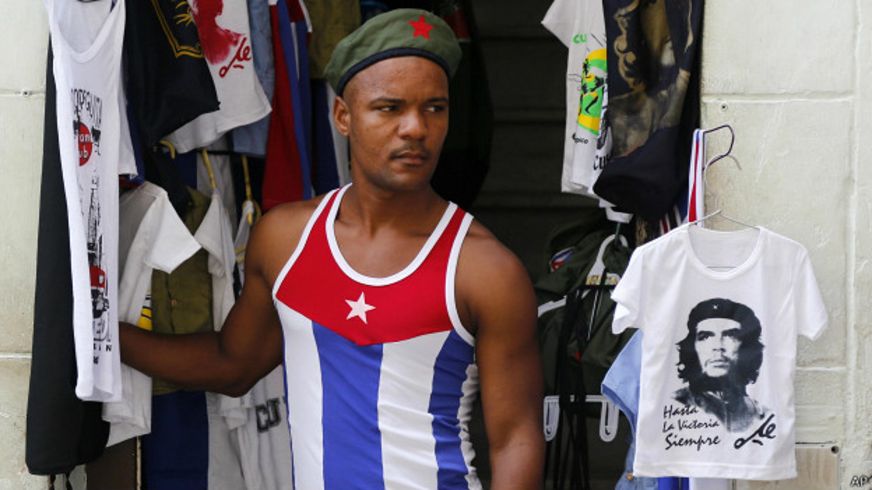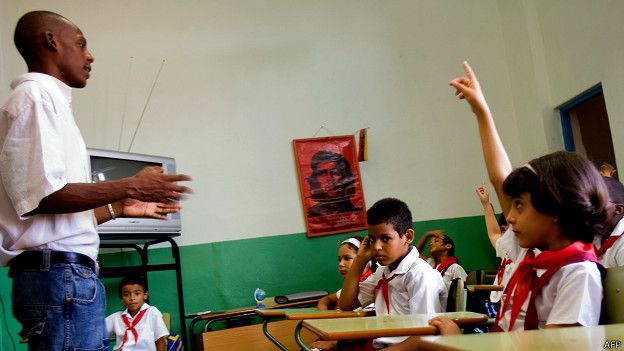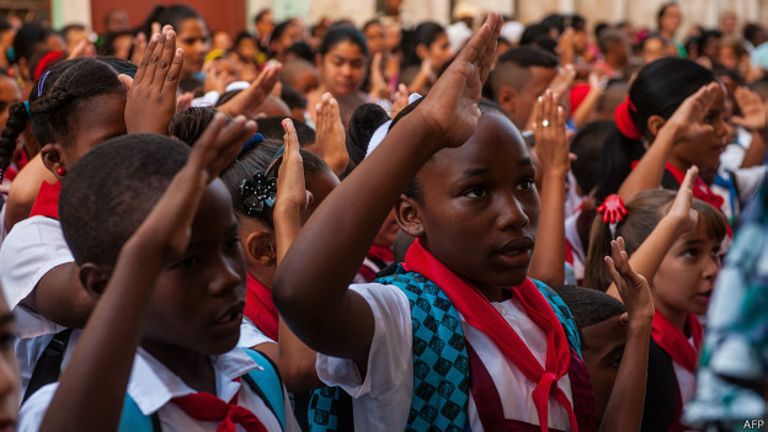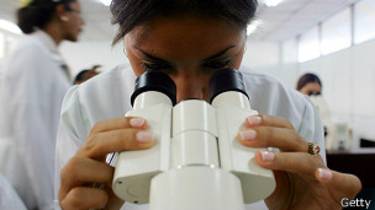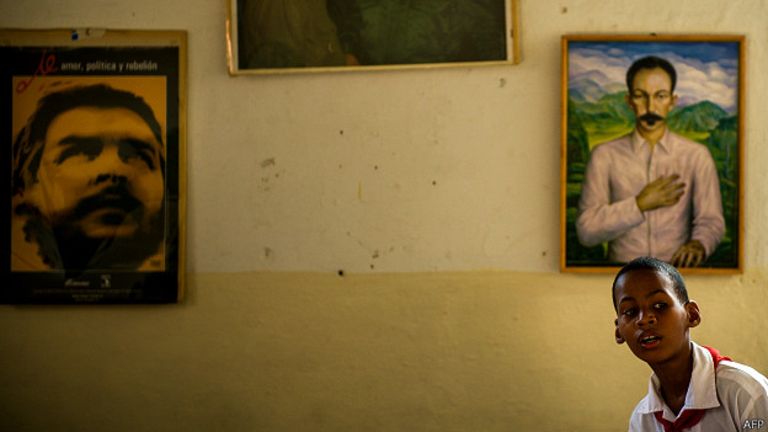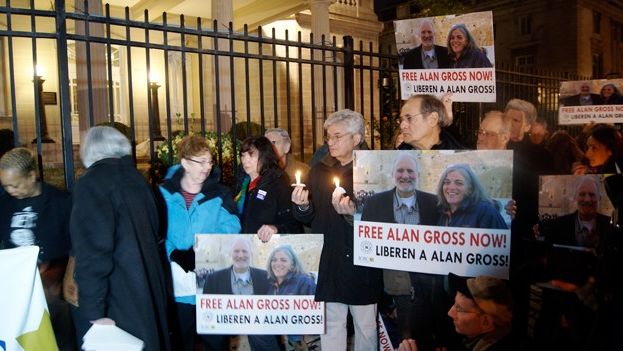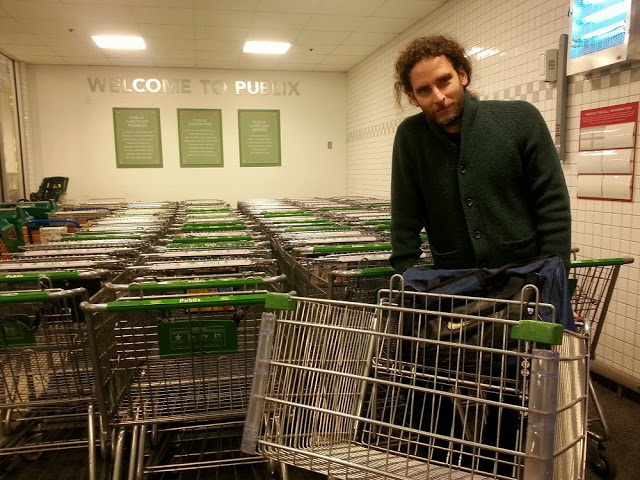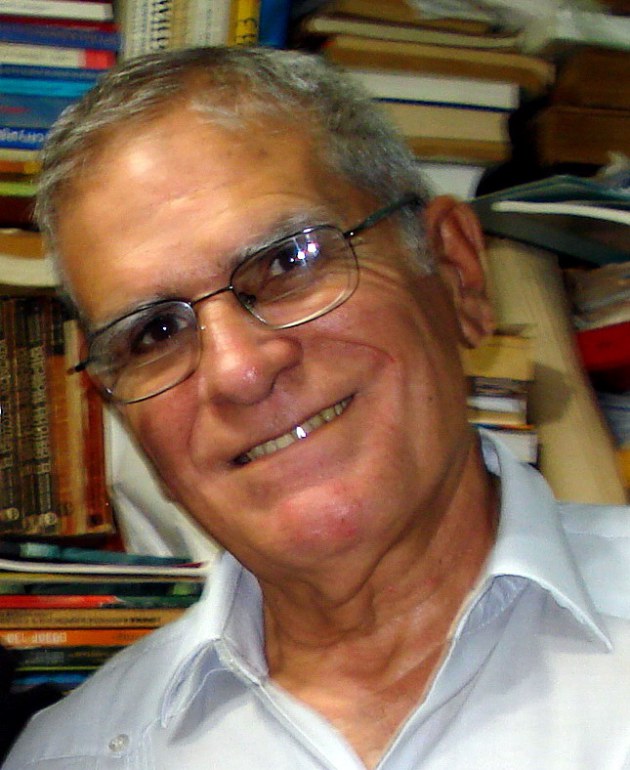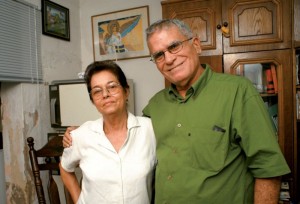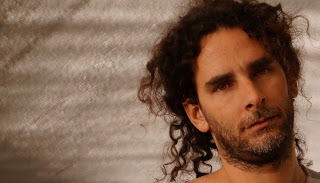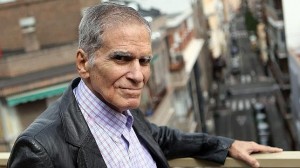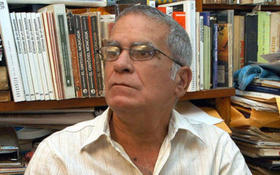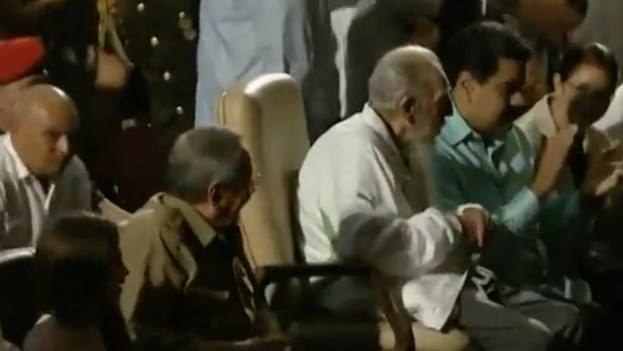
![]() 14ymedio, Miriam Celaya, Havana, 26 November 2016 — The official media have just announced the last and definitive death of Fidel Castro, and I think I have perceived more relief than bereavement in the mournful message. If I were a religious person, I would feel at least a tiny bit of grief, but that is not the case. Definitely, pity toward despots is not among my few virtues. And, as I have always preferred cynicism over hypocrisy, I am convinced that the world will be a better place without him.
14ymedio, Miriam Celaya, Havana, 26 November 2016 — The official media have just announced the last and definitive death of Fidel Castro, and I think I have perceived more relief than bereavement in the mournful message. If I were a religious person, I would feel at least a tiny bit of grief, but that is not the case. Definitely, pity toward despots is not among my few virtues. And, as I have always preferred cynicism over hypocrisy, I am convinced that the world will be a better place without him.
At any rate, to me, the old dictator had died a long time ago, at an unspecified date, buried under some dusty headstone, without epitaph in the deepest recesses of my memory, so I can only be curious about what this expected (exasperated) outcome might mean for those who have kept their destinies tied to every spasm of his many deaths.
Nevertheless, just because I had given him an early funeral doesn’t mean that his irreversible departure from this world is not a momentous event. The image of the defeated specter he had become will now disappear, and his passing will also cease to gravitate over the superstitious temperament of the nation as an unavoidable doom. We will finally find out whether the prophecy Cuba will really change after Fidel dies is true or false, because it seems that, for almost all Cubans, waiting for changes that result from nature’s course is easier than taking the risk to do it themselves. Peoples who feel ashamed of their fates often blame their rulers for their own collective irresponsibility. continue reading
There are also the superstitions, a nice wild card for the national lethargy. There are too many people that believe in some god, in a sense of fatality, in the tarot, in the zodiac signs, in the I Ching, in the Tablet of Ifá or other prophecies of the most varied kind. I have never believed in any of them, perhaps because accepting the mysteries of these predestinations as true would have made me feel I was cursed just for having been born in Cuba in 1959. Far from it, such an adverse coincidence became the challenge that I accepted gladly, so I never experienced the deep feelings of frustration that oppress several generations of Cubans, choked under the effects of the power of a sort of superhuman entity that seemed to sum up all creeds in it and that intervened in every destiny. An impostor, in short, pretending to be god, oracle and mantra all at once.
For almost all Cubans, waiting for changes that result from nature’s course is easier than taking the risk to do it themselves
Nevertheless, all my memories are intact. They have survived every cataclysm in good health. How could I go back on them if our spirit is pure memory? I reminisce without love, without resentment, without bitterness and without regrets, as if I were observing, in an old movie, my own story which is the same for millions of Cubans like me. There are even some chapters I find amusing. How could we have once been so naïve? How did our parents and grandparents allow us to be manipulated in such an atrocious way? It was because of fear. Fidel Castro’s true power was never the love of Cubans, but the unspeakable fear they felt toward him, an irrational and irate leader, and an individual whose limitless egomania could only be matched by his inability to feel empathy. Sometimes fidelity is only a resource for survival.
Looking back on the first 20 years of my life, I remember Fidel Castro as a sort of omnipresent magma that invaded every space of public and private life. He seemed to have the gift of ubiquity and to appear everywhere at once. My earliest memories of childhood are invariably associated with that image of the bearded man who never smiled, dressed in a military uniform, whose portrait could be found anywhere, whether on the wall of a building, on a fence, on the covers of magazines, newspapers, or in a carefully framed picture in the halls of revolutionary Cubans, who were a majority back then.
That same man very often appeared on the screen of my grandmother’s television (in my mind, I thought he lived inside that device), or he invaded every home from the radio stations, thundering and fierce, making long threatening and scolding speeches, loaded with harangues. He was always irritated, so I was a little afraid of him and tried – with little or no success – to stay away from his vibrations. My elders swelled with ecstasy and even cried out, excited about the false prophet’s this or that bravado. “It’s El Caballo!* that’s how it’s done!” The admirers of the new hard man would bellow, drunk with a fervor that I did not understand but which, over time, succeeded in infecting me.
In any case, “Fidel” was one of the first words uttered by the children of thousands of families which, like mine, had discovered that on the dawn of January 1, 1959 they were suddenly revolutionaries. And thus, also suddenly, in a nation traditionally Catholic, quite a few proclaimed themselves as atheists and renounced God only to accept a new faith, Fidel Castro as savior, and communist dogma as catechism.
Fidel Castro’s true power was never the love of Cubans, but the unspeakable fear they felt toward him
Meanwhile, countless families were fractured by political polarization and emigration. Parents and children, siblings, uncles, cousins who had always lived in harmony, clashed, became filled with grudges and distanced themselves from one another. There were those who never spoke to each other again, and died without the embrace of reconciliation. Many survivors of this telluric rupture are still picking up the pieces and trying to recreate some parts of our battered lineages, at least out of respect and homage to our estranged departed family members, all because of an alien hatred.
Then came the militias, the Bay of Pigs, the Missile Crisis, the compulsory military service, the rationing card, the monumental harvests, the Revolutionary Offensive, Angola, the in-field schools and the schools in the countryside, and the permanent consecration of endless delusions of the Great Egomaniac. And with the passage of time, the signals of the ruin we insisted on ignoring began to arrive.
The increasing shortages were silenced with slogans and with gigantic plans doomed for failure, all freedoms were buried and rights disappeared, sacrificed on the olive green altar under the weight of once sacred words and now debased by speeches (“homeland,” the most tainted; “liberty,” the most fraudulent), while – unnoticed and blind – we Cubans ourselves helped to build the bars of our prison and, docile, left the keys in the hands of the jailer.
The first great schism between the lunatic orator and me were the events at the Peruvian embassy, and especially the Mariel stampede, between April and May, 1980. They were not, however, isolated events. The first conversations (they are often referred to as approaches) had taken place in 1978 between the dictatorship and a group of emigres living in the United States, which resulted in the opening of family visits in 1979, although only in one direction: from Miami to Cuba.
Cubans themselves helped to build the bars of our prison and, docile, left the keys in the hands of the jailer
Suddenly, the stateless-wormy-counterrevolutionaries were not that, but “our brothers from the Cuban community abroad,” who had been able to preserve their original cultural values and their own language in foreign lands, and who were being offered the right to visit their country of origin and reunite with their families. Now they happily arrived, weighed down with gifts for the beggars who had chosen a revolution that proclaimed poverty as a virtue. Naïve or not, many of us felt the manipulation and discovered that we had been scammed, and although one does not wake up at the first bell after a long and deep lethargy, we began to live on alert and to question the system.
Then, without expecting it, the New Man, forged under the principles of that celebrated whore called Revolution, witnessed in surprise the spectacle of the hordes gathered at the Peruvian diplomatic headquarters and the mass flight through the port of Mariel. And we were perplexed by the thousands of deserters and horrified by the repudiation rallies, the beatings, vexations and insults towards those who were emigrating and the impunity at the barbarism that was only possible because it had been instigated and blessed from the power.
By then I was sporting my new motherhood, and before every fearful scene I would cling to tenderness for my son. I think it was then that I began to definitively tear all the dense veils of the lie I had lived for 20 years and became obsessed with the search for the truth in which I would bring up my children: freedom as a gift that we carry inside, which nobody grants, which is born with the being. So ended Fidel Castro’s leadership of me, dragging in his fall any possibility of future glitches in my spirit. The dissident, living in silence within me, emerged that year, and the paradigmatic leader of my adolescence began to transmute into an enemy.
The feelings his existence infused in me were fear, admiration, respect, devotion, doubt, disbelief, resentment, contempt, and, finally, the most absolute indifference
That is why the difficult events and the Fidel battles that followed my conversion did not make a mark: the Ochoa case, the associated executions, the Special Period resulting from the collapse of real socialism, the Maleconazo, the Balseros Crisis, the rescued child rafter Elián, the Open Tribunes, the Roundtables, the Five Spies, the Black Spring, the Battle of Ideas, the Energy Revolution and so much nonsense that resulted in swelling the ranks of the discontented and the disenchanted, widening the rift between the power and millions of Cubans.
My feelings for Fidel Castro went through several stages. It could not be any other way, since I was born in 1959, since I grew up in a family of Fidel fans and since I’ve spent my whole life in Cuba. The feelings his existence infused in me were fear, admiration, respect, devotion, doubt, disbelief, resentment, contempt, and, finally, the most absolute indifference.
News of his death, then, does not stir emotions. A friend recently wisely told me that Fidel Castro was not cause, but consequence. It seems to me an accurate sentence to summarize the history and idiosyncrasy of the Cuban nation. Because we Cubans are not (we have never been) the result of Fidel’s existence, but the reverse: the existence of a Fidel was possible only thanks to Cubans, beyond political or ideological tendencies, beyond our sympathy or resentment. Without all of us the power of his long dictatorship would not have been sustained.
That is why I take this, the occasion of his ultimate death, to sincerely make a toast, not to his memory, but to ours. May our memory never falter, so that we do not forget these decades of shame, so that no more Fidels are repeated on this earth! And I also offer, with all my hope, to celebrate the opportunity that this happy death unlocks to the new life that all Cubans will finally build in peace and harmony.
*The Horse: Fidel Castro’s nickname among Cubans
Translated by Ernesto Ariel Suarez and Norma Whiting

